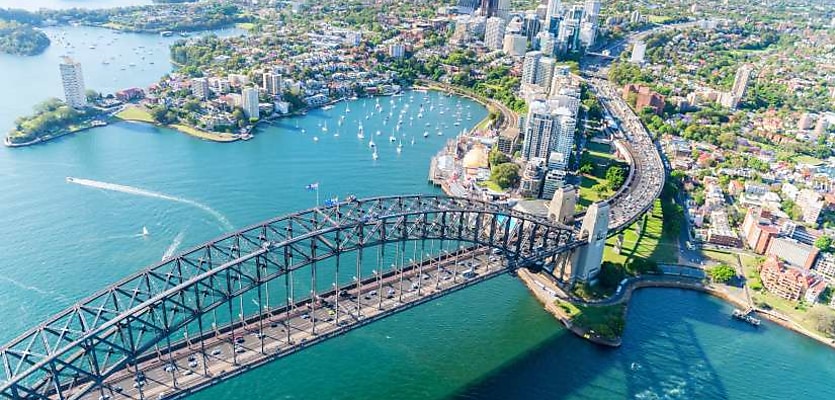The Australian city ranked 16th out of 25 global cities examined for the risk of a drastic price turnaround.
According to the 2024 edition of the UBS Global Real Estate Bubble Index, even though Sydney has seen sharp price increases over the past three years in particular, it’s unlikely that supply and demand dynamics would suddenly shift to trigger a drop in values.
The financial services firm, which annually records the risk of a real estate bubble forming in 25 top global city markets, has said that Sydney’s risk level increased slightly from last year, but still sits in moderately safe territory.
Given the projection that interest rates will begin to decline in 2025, the firm estimated that prices across the city are anticipated to hold firm, and potentially experience another cycle of strong increases.
Moreover, UBS noted that “large-scale infrastructure developments” such as the Sydney Metro and other urban improvements are expected to “enhance the city’s attractiveness in the long term”.
The firm put much of the city’s stability down to the ongoing lack of supply though, noting that such effects are also at play across Vancouver and Madrid, which maintain a similarly stable rating to Sydney. Amsterdam and Boston are also rated in the moderate risk category.
At an even lower level of risk are global cities San Francisco, New York, São Paulo, London, Paris, Stockholm and Milan, where prices show no signs of a sharp turn.
Generally across the year, UBS reported that in the 25 markets it analyses, the level of risk has decreased for the second consecutive year.
On the other end of the scale, Miami now shows the highest bubble risk among the cities in the study, followed by Tokyo and Zurich. An elevated risk of a housing bubble is also evident in Los Angeles, Toronto and Geneva.
Overall, UBS reported that the last four quarters were characterised by muted housing price growth. But strong corrections continue in Paris and Hong Kong. In contrast, in the sought-after locations of Dubai and Miami, housing prices have surged further.
Claudio Saputelli, chief investment officer of global real estate at UBS, noted that the cities experiencing the strongest price corrections this year were the ones deemed of high risk for a bubble environment in years’ past.
For example, real prices in Frankfurt, Munich, Stockholm, Hong Kong and Paris have now fallen below their post-pandemic peaks by 20 per cent or more.
But looking ahead, the firm feels that the momentum in the housing market is set to improve.
“Rising rents underpin demand for home ownership in urban areas. Falling interest rates will shift the user-cost advantage sharply back to buying. First-time home buyers would return to the market as affordability improves,” said of the factors set to dominate the 12 months ahead.
Matthias Holzhey, lead author of the study, added that currently the firm believes that “real housing prices in many cities have bottomed out. The economic outlook will likely determine whether prices once again surge or rather track sideways”.
ABOUT THE AUTHOR
Juliet Helmke
Based in Sydney, Juliet Helmke has a broad range of reporting and editorial experience across the areas of business, technology, entertainment and the arts. She was formerly Senior Editor at The New York Observer.









You are not authorised to post comments.
Comments will undergo moderation before they get published.